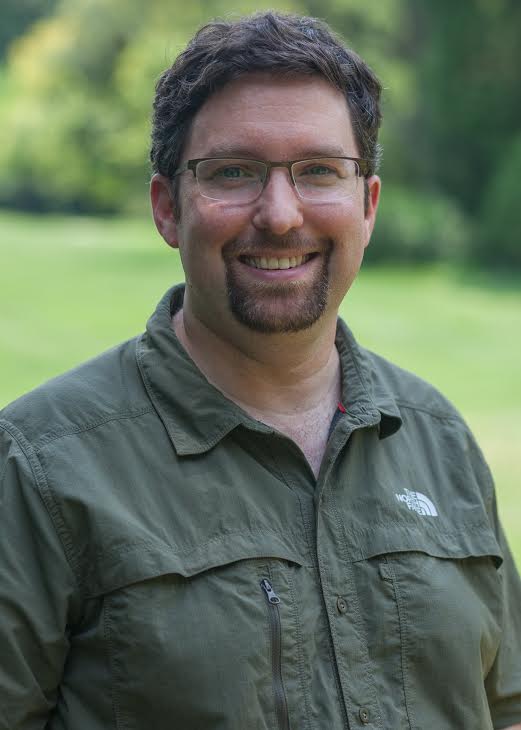“Good scientists should be rewarded with good observing time,” Dr. Jonathan Hargis says as he shrugs his shoulders. And essentially, that’s just it. Dr. Hargis, a good scientist, has been awarded good observing time. Yet, on an entirely different level, Dr. Hargis is not simply a “good scientist,” and he was not simply awarded “good observing time.”
Senior Research Associate and Visiting Assistant Professor in the Department of Physics and Astronomy at Haverford College and, most notably, an Eastern alumnus, Dr. Jonathan Hargis was awarded time to use the Hubble Space Telescope for his research with dwarf galaxies. So yes, Dr. Hargis is a good scientist rewarded with good observing time. But after speaking with him about his exciting research, Eastern’s influence on his astronomy career, and what’s next, I must contend that Dr. Hargis supersedes the category of “good scientist,” falling instead into a category of excellence that mirrors his divine Creator.
Dr. Hargis and his colleagues at Haverford collaborate with a number of different astronomy professionals at universities such as Michigan State, California Institute of Technology, Harvard, and Texas Tech for any number of projects. Right now, Dr. Hargis and his collaborators are interested in looking at the formation and evolution of dwarf galaxies that hang around larger galaxies. Using an earthbound telescope, they were able to find six new galaxies forming around another galaxy, yet without additional work, the team couldn’t pinpoint the nature of the relationship between the background galaxies and the host galaxy. Dr. Hargis admits, “In order to answer a question like that, you have to have something like Hubble.”
Time with the Hubble Space Telescope is very difficult to get, with astronomers from around the world applying to be awarded with even just an orbit of observing time, which equals about 50 minutes of observation. After applying, Dr. Hargis and his colleagues were awarded six orbits of observation time and a substantial grant to fund the research. Hubble’s control center, the Space Telescope Science Institute, is located in Baltimore, Md., where astronomers will conduct Dr. Hargis’ observations to his exact specifications.
Dr. Hargis and his collaborators view this award as an exciting venture, a once-in-a-lifetime opportunity. “One of the goals is to do something with as much excellence as possible because of who you serve,” Dr. Hargis explains, “and for me, getting Hubble time, trying to push forward as a scholar, is all about being the best astronomer that I could be because of who I represent.” For this Haverford astronomer, it is not what he represents but who. Sure, he represents both Haverford and Eastern, but more importantly, he represents God. And being awarded time with Hubble affirms the majesty of whom he serves: “It just encourages my faith…these are opportunities to celebrate because I’m doing this and God has me here for a reason.”
After graduating from Eastern in 2000, Dr. Hargis came to Haverford in 2013 after a circuitous path took him to San Diego State University to receive a Masters’ in astronomy; back to Eastern to work for Administrative Computing and briefly teach Cosmology; to Indiana University to receive his Ph.D. in astronomy; and finally to Haverford College to study dwarf galaxies in the nearby universe.
What of his time at Eastern as an undergraduate? Dr. Hargis illustrates, “As an 18-year-old, here I am in this brand-new, half-a-million-dollar facility controlling a telescope, and I’m up all night with arguably the coolest guy ever.” At the time, the half-a-million-dollar Bradstreet Observatory was brand new, and the coolest guy ever, Dr. David Bradstreet, was and still is its figurehead. “I went to Dr. Bradstreet maybe as a junior in college and said that I want to be an astronomy major…without [his] mentorship I wouldn’t be anywhere. That goes without question,” Dr. Hargis effuses. He explains further that most Eastern students take for granted the facilities that sit at the top of McInnis, that they take for granted the opportunities that they have to use such state-of-the-art equipment. “The fact that as an undergraduate at Eastern, you actually have to use the observatory to pass the astronomy course, that’s being done in very few places in the world,” Dr. Hargis notes, emphasizing that undergraduate students at universities like Penn or Drexel do not even touch a telescope as a first-year astronomy student.
What’s after Hubble for Dr. Hargis? To even ask that seems unfair because, as an astronomer, Hargis can attest that Hubble is the pinnacle of what you can do in the field right now. Yet, if he and his colleagues can prove that the six galaxies surrounding the larger host galaxy are indeed dwarf galaxies, his research will be potentially groundbreaking for the astronomy community. Overall, Dr. Hargis is humbled by this prestigious award, “It’s huge to get awarded this time because it sets the bar high, that stamp of approval that says, ‘Holy smokes, [your research] has been vetted at the highest levels of the community.’”
Image courtesy of Thom Carroll Photography/The Waltonian

